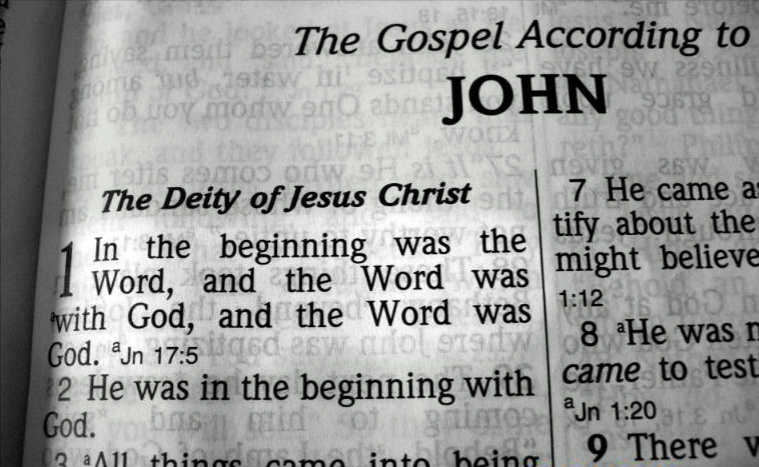 As Barth considers the eternal will of God in the election of Jesus Christ, he notes in passing that,
As Barth considers the eternal will of God in the election of Jesus Christ, he notes in passing that,
The very best of the older theologians have taught us that in the word which calls and justifies and sanctifies us, the word which forms the content of the biblical witness, we must recognise in all seriousness the Word of God. Beside and above and behind this Word there is none other. To this Word then we have good cause to hold fast both for time and eternity. This Word binds us to itself both for time and eternity, and in it all our confidence must be placed. This Word does not allow us to go beyond it. It allows us no other view of God or man than that which it reveals itself. It focusses all our thoughts upon this view and keeps them focussed there. It warns us against any distraction. This Word alone must satisfy all our questioning because it alone can do so. The work of God is revealed in this Word in its totality, being there revealed in such a way that there can be no depth of the knowledge of the divine work except in God’s Word, and the knowledge of the divine work cannot lead us to any depth which is not that of God’s Word (Church Dogmatics II/2, 150).
Barth is here arguing against speculative doctrines of divine election that begin elsewhere than with the revelation of God given in Jesus Christ. How can we truly understand the divine work if we turn from the place where God has made himself known: Jesus Christ, as he is attested for us in holy scripture. When Barth says, “Word of God” we do well to keep in mind that he refers to both the Living and the Written Word in their mutual relation.
Of interest to me was the last sentence in the above citation, which provides a hermeneutical and methodological principle: The work of God is revealed in this Word in its totality, being there revealed in such a way that there can be no depth of the knowledge of the divine work except in God’s Word, and the knowledge of the divine work cannot lead us to any depth which is not that of God’s Word.
It is not uncommon to speak with Christians who adhere, for example, to the word of Jesus but who do so in a way at odds with the life and work of Jesus. Nor is it uncommon to speak with Christians who seek to follow in some aspect of the way and ethos of Jesus but do so in a way at odds with his teaching. For Barth, Jesus Christ is the criterion of all knowledge of God, but Jesus Christ as both the word and the work of God. No separation is permissible here, nor any division on the one side or the other. It may be that the emphasis falls now at this point, and then at another. It is likely that theological reflection leading to faith and work will alternate back and forth between the two, allowing both the Word of God and the work of God to mutually inform one another, but always with a precedence given to the Word which binds us to itself, and to and by which we also are bound.